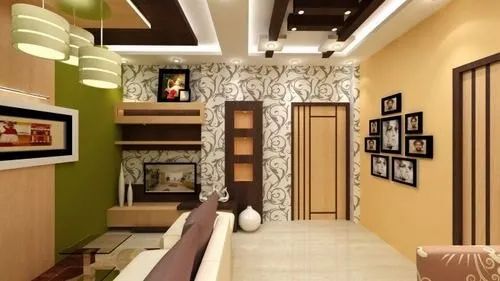
In the realm of creating captivating and functional living spaces, interior design and decoration play a pivotal role. Whether you are embarking on a home makeover or seeking inspiration for a new space, understanding the intricacies of interior design can be a game-changer. This comprehensive guide will delve into the fundamentals of interior design, answering essential questions like what it is, how it works, how to implement it, and much more.
What is Interior Design?
Interior design is the art and science of enhancing the interior of a space to create a more aesthetically pleasing and functional environment. It involves a combination of creativity, technical expertise, and a deep understanding of the inhabitants’ needs interior styling. Interior designers are skilled professionals who transform spaces into visually appealing and harmonious compositions.
How Does Interior Design Work?
Interior design works by considering various elements such as color schemes, furniture arrangement, lighting, and accessories to create a cohesive and inviting atmosphere. Designers aim to optimize the functionality of a space while reflecting the client’s personality and preferences. The process typically involves a thorough analysis of the client’s requirements, conceptualizing a design plan, and implementing it with attention to detail.
How to Get Started with Interior Design?
Getting started with interior design involves a step-by-step process:
Define Your Style: Begin by identifying your personal style preferences. Explore different design styles such as modern, traditional, minimalist, or eclectic to determine what resonates with you.
Set a Budget: Establish a realistic budget for your project. This will guide your choices and help you prioritize essential elements within your financial constraints.
Create a Mood Board:
Compile images, color swatches, and inspirations into a mood board. This visual tool will serve as a reference point throughout the design process.
Consider Functionality:
Prioritize functionality based on the purpose of each space. For example, a living room may require comfortable seating, while a home office needs efficient workspace solutions.
Choose Color Schemes and Materials: Select color schemes and materials that align with your style and contribute to the desired ambiance. Consider factors like durability and maintenance when choosing materials.
How Can Interior Design Impact Your Well-Being?
Interior design goes beyond aesthetics; it can significantly impact your overall well-being. A well-designed space promotes comfort, reduces stress, and enhances productivity. Factors such as lighting, ventilation, and the arrangement of furniture can influence mood and contribute to a healthier living environment.
What Are the Latest Trends in Interior Design?
Staying updated with the latest trends can provide inspiration for your design journey. Some current trends include:
Biophilic Design: Integrating natural elements into interiors to create a connection with the outdoors.
Sustainable Design: Embracing eco-friendly materials and practices to reduce environmental impact.
Maximalism: Bold patterns, vibrant colors, and eclectic combinations to create visually rich and dynamic spaces.
How Do I Choose the Right Furniture and Accessories?
Selecting the right furniture and accessories is crucial for a well-rounded design. Consider the following tips:
Measure Your Space: Ensure furniture fits well within the dimensions of your room to avoid overcrowding or underutilization of space.
Mix and Match: Combine different textures, materials, and styles to add visual interest and personality to your space.
Invest in Quality: Prioritize quality over quantity. Well-crafted furniture and accessories tend to last longer and contribute to the overall longevity of your design.
Conclusion:
Interior design and decoration are powerful tools for transforming spaces and enhancing the quality of life. By understanding the fundamental concepts, embracing personal style, and staying attuned to current trends, you can embark on a rewarding journey of creating a home that reflects your unique personality and meets your practical needs. Remember, the key to successful interior design lies in the seamless integration of aesthetics and functionality, making every space a true reflection of those who inhabit it.
Leave a Reply